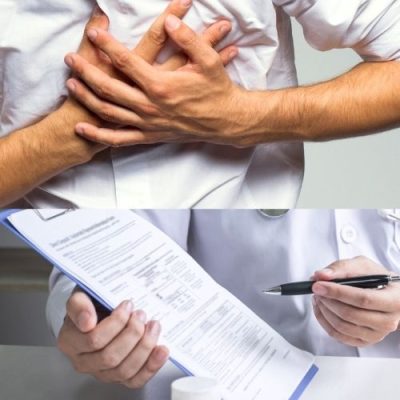
Heart disease has become a major concern in today’s fast-paced life. The most serious of these problems is heart blockage, which in common language is called blockage in the arteries of the heart. When cholesterol, fat or plaque starts accumulating in the arteries of the heart, the flow of blood is obstructed. If this condition is not handled in time, it can lead to a heart attack.
It is important to recognize the Heart Blockage Symptoms because if it is detected at an early stage, then treatment is possible in time. But the problem is that many people ignore the early signs.
There can be many reasons behind heart blockage. The main reasons for these are:
Due to these reasons, fatty deposits begin to accumulate in the arteries, which gradually leads to heart blockage.

Heart blockage does not happen suddenly, it develops gradually. It is very important to understand the early heart blockage symptoms. Let‘s know some common symptoms:
These symptoms are mild in the beginning, but may increase over time.
Heart blockage symptoms can be different in men and women. Often women ignore the symptoms because their signs are slightly different and mild.
Common symptoms in men:
Common symptoms in women:
Women often feel less chest pain, so they feel these symptoms like gas or acidity. This is the reason why women reach the doctor late.
Not everyone has heart blockage symptoms, but some people are at a higher risk.
These are the main risk factors:
People with these risk factors should pay special attention to heart blockage symptoms.
Get expert second opinions from trusted specialists — because your health deserves clarity.
If you ignore the heart blockage symptoms, it can prove to be fatal.
What dangers can there be from ignoring the early signs?
So if you see even mild pain or heart blockage symptoms, contact a specialist doctor immediately.
Many times people think that it is only acidity or fatigue, but in reality it can be a sign of serious heart problem.
When is it necessary to see a doctor?
Don‘t take all of these signs lightly. Visiting the doctor at the right time can save lives.
If you see heart blockage symptoms, the doctor diagnoses the condition by doing the right examination.
Here are the major tests to identify a heart blockage:
These tests make it clear whether you have a heart blockage or not and at what stage.
If the blockage is confirmed in the investigation, then the doctor starts treatment. Treatment depends on the level of blockage.
Main treatment:
If the heart blockage symptoms are identified in time, then often surgery is not needed.
Lifestyle changes are necessary to prevent heart blockage.
If you want to avoid heart blockage symptoms, follow these tips:
With these habits, you can avoid heart blockage.
Ignoring heart blockage symptoms can be dangerous. Pay attention to even the mildest signs and visit the doctor on time. Treatment at the early stages is easy and successful.
EXCELLENTTrustindex verifies that the original source of the review is Google. 5/5 Stars - Highly Recommend: Exceptional Expertise and Compassionate Care When dealing with heart health, trust is everything, and Dr. Munish Dev has earned mine completely. He is truly one of the best Cardiologists in the Chandigarh/Tricity area.Posted onTrustindex verifies that the original source of the review is Google. Very nicePosted onTrustindex verifies that the original source of the review is Google. I am truly grateful to Dr.Munish for his exceptional care, guidance and constant support. His expertise and timely decisions have truly kept our lives safe. It is reassuring to know that he's always there when we need him. Thank you, Doctor, for your dedication and kindness.Posted onTrustindex verifies that the original source of the review is Google. Dr Munish Dev is an esteemed cardiogist widely appreciated for his expertise and compassionate carePosted onTrustindex verifies that the original source of the review is Google. Dr. Munish Dev is a best Cardiologist And best person. It's my own experiencePosted onTrustindex verifies that the original source of the review is Google. Dr.Munish Dev is one of the best cardiologist in Chandigarh.He always listen his patient’s carefully and always make sure that the patient is comfortable with his treatment .My experience with him is very nice .Thank you Dr.Munish Dev to save my life.Posted onTrustindex verifies that the original source of the review is Google. DR.MUNISH SIR IS VERY KIND OF HEART FOR PATIENTSPosted onTrustindex verifies that the original source of the review is Google. I was having chest pain for three months . Dr. Munish after examining and doing ECG , ECHO explained in detail the cause of chest pain and reassured me. He is really a great cardiologist and a good human being . Listens to you very patiently and explains everything in detail. Highly recommend him.Posted onTrustindex verifies that the original source of the review is Google. I was searching for a Cardiologist in Chandigarh to get my regular heart check up because I was having chest discomfort. I was highly impressed by Dr Munish Dev and his knowledge. He explained each and every report( blood reports as well as echocardiography and ecg) in detail. Highly recommend him for any heart related query.Posted onTrustindex verifies that the original source of the review is Google. I was really anxious about my heart condition, but Dr. Munish Dev’s calm nature and clear guidance put me at ease. The treatment went smoothly, and he kept a close check on my recovery. I truly feel he is the best cardiologist in Chandigarh, and I would recommend him to anyone who needs heart care.
Dr. Munish Dev completed his medical education in MD (Medicine) at the prestigious UCMS & GTB Hospital Delhi. Read More…
©2025 All Rights Reserved.